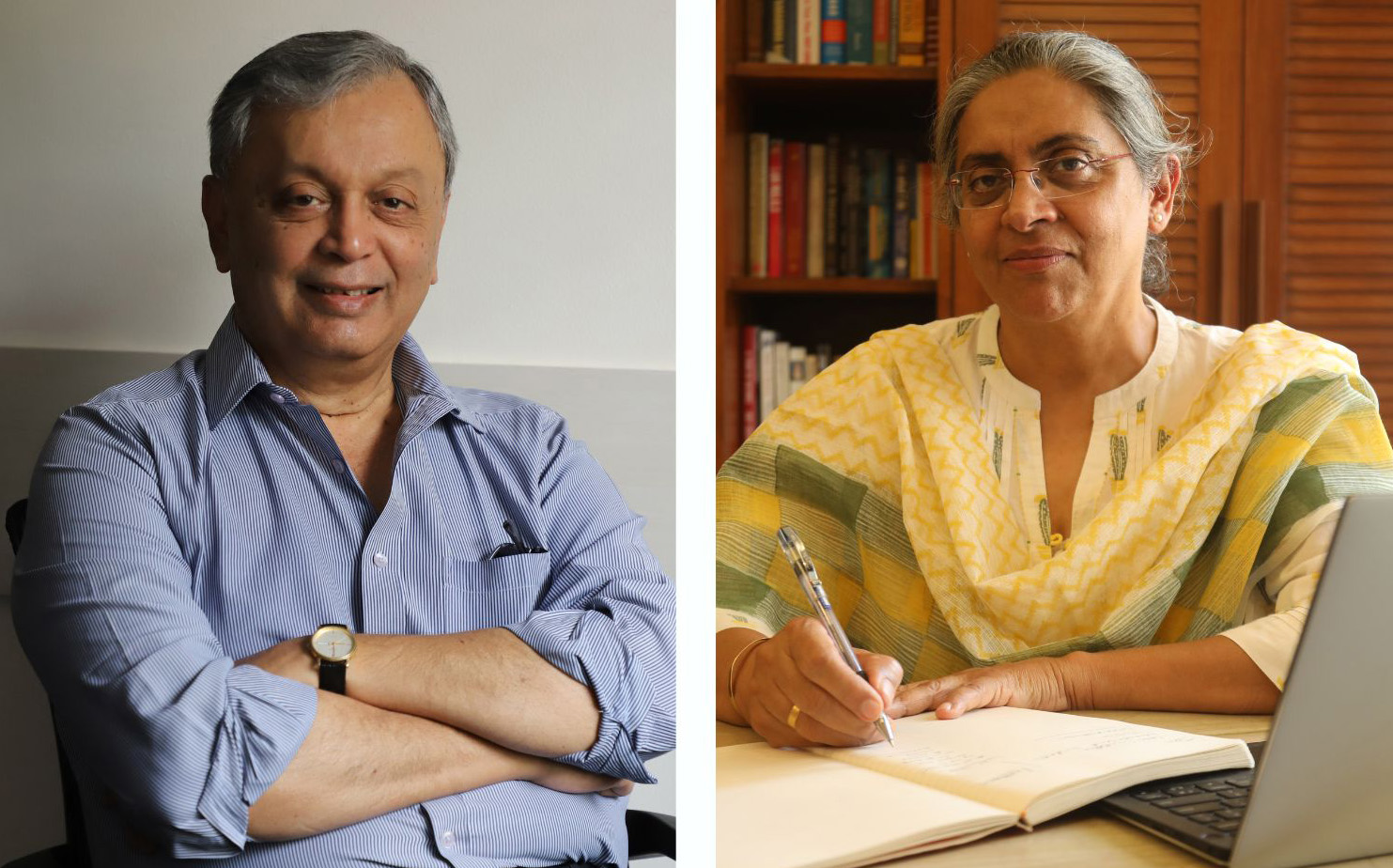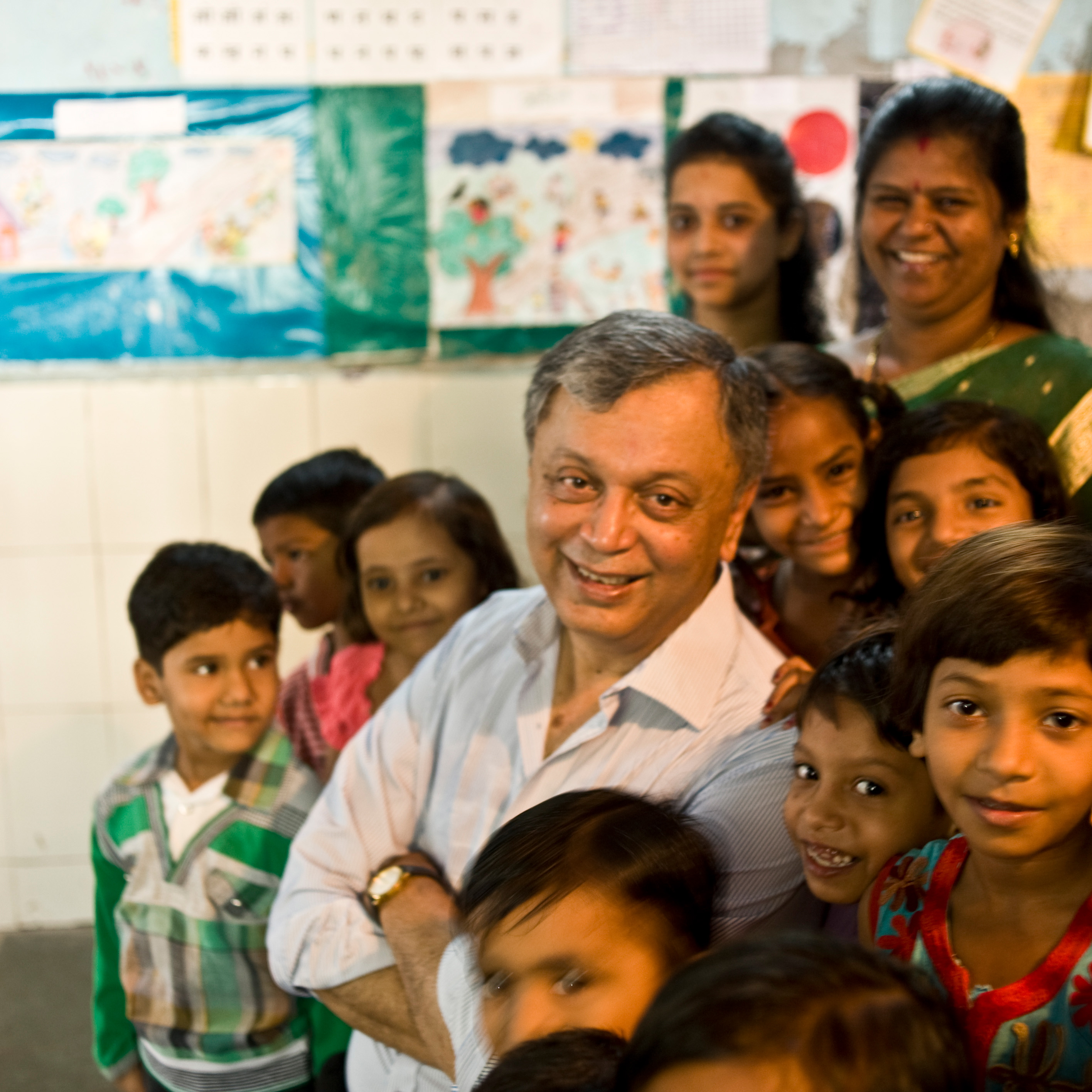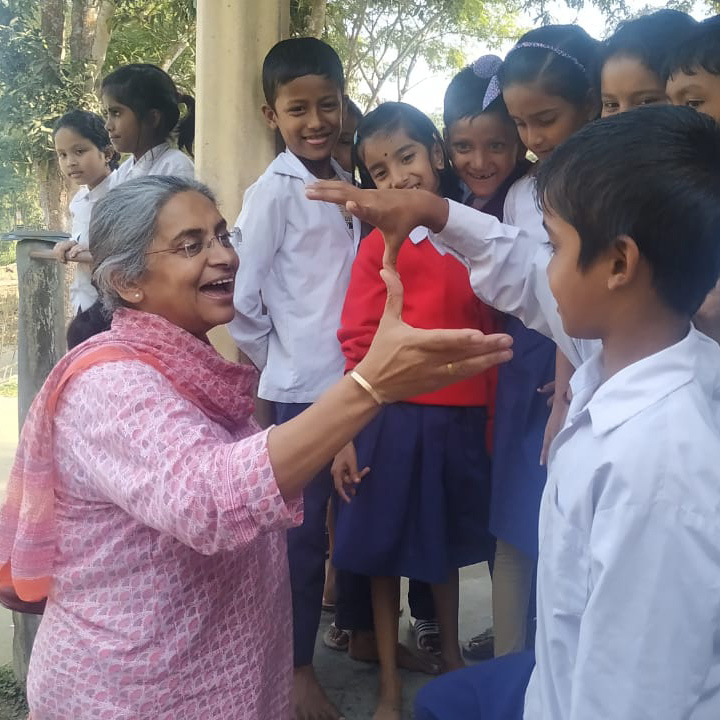
- Co-Founder and President (Madhav Chavan); Chief Executive Officer (Rukmini Banerji),
Pratham Education Foundation (Education)
Born Mumbai, India. M.Sc in Inorganic and Nuclear Chemistry, Institute of Science at Bombay University (1978); Ph.D in Chemistry, Ohio State University (1983).
Rukmini Banerji:
Born Patna, India. BA in Economics, St. Stephen's College, Delhi University, India (1980); MA in Economics, Delhi School of Economics (1981); BA in Philosophy, Politics and Economics, Balliol College, Oxford University (1983); Ph.D in Education, University of Chicago (1991).
“The important point was to solve the problem. You don’t know where you’re going to end up, but you’ve got to make an entry.”
Summary
Dr. Madhav Chavan and Dr. Rukmini Banerji are the leaders of Pratham, one of the largest non-governmental organizations in India which seeks to improve the quality of education for children throughout the country. Established in 1995 by Dr. Chavan and Farida Lambay, Pratham started with the goal of universalizing primary education in the city of Mumbai. Since then, the organization has expanded its reach throughout India by enacting low-cost and replicable programs to address gaps in the education system.
Chavan and Banerji begin the interview by reflecting on their educations and early careers prior to Pratham. Both moved to the United States for graduate studies, obtaining PhD degrees in Chemistry and Education respectively. When Chavan returned to India in 1986, he intended to become a chemistry teacher. However, he was drawn to an adult literacy program started by the Indian Prime Minister at the time, Rajiv Gandhi. The adult literacy program later began to dissipate after 1991 following India's shift towards liberalization. In 1992-93, the United Nations International Children's Emergency Fund (UNICEF) began focusing on primary education with the goal of bringing business, government and the voluntary sectors together in order to understand and solve problems with the education system in India. It was in this context that Chavan co-founded Pratham in Mumbai, with the goal of implementing a new model and approach to the situation.
Banerji joined Pratham in 1996, while it was starting to expand by opening hundreds and then thousands of preschool centers around Mumbai. During her first years with Pratham, Banerji conducted a study to assess the math skills of 3rd and 4th grade students. The simple assessment evolved into ASER, the Annual Status of Education Report – an academic report that is widely used in India as well as other countries. She emphasizes the need to develop easily replicable educational tools and assessments that can stimulate policy action and change.
As India continued to develop rapidly in the 2000s, Chavan explains that the need to address gaps in the education system became increasingly clear, particularly to businesses which started establishing foundations dedicated to supporting education. As an organization, Pratham held a unique position as it worked alongside both government and businesses. They built partnerships with government at different levels, and Chavan emphasizes how that was important given that there is “no single thing called government.” He relates that working with different layers of government was comparable to “playing the whole court.”
Banerji and Chavan proceed by laying out the challenges that persist in India’s education sector, especially following the start of the COVID-19 pandemic in 2020 and the expansion of remote learning technologies. They discuss a need to look at education as a whole from a different perspective, utilizing technology to break down barriers to learning. This includes promoting the use of PraDigi, a digital initiative that provides tablets equipped with a learning app delivering high-quality, interactive educational content. Chavan underscores the importance of utilizing such technology to foster an easily accessible and open learning environment.
To conclude the interview, Banerji and Chavan address the question of leadership succession, as Banerji became Pratham’s Chief Executive Officer in 2015 after Chavan. While Chavan remains involved, he articulates advice for leaders who should “get out of the way of the next person,” preparing the organization and relationships within it for a new leadership style. While describing themselves as different when it comes to their approach, both Banerji and Chavan express a persistent commitment to expanding the organization’s mission further, by having “every child in school and learning well.”
Video Clips by Topic
Social Impact
Dr. Rukmini Banerji, Chief Executive Officer of Pratham Education Foundation, relates how the organization has sought to implement simple educational tools and models for others to follow.
Leadership
Dr. Rukmini Banerji, Chief Executive Officer of Pratham Education Foundation, traces how the organization’s objectives have changed over time, and expresses her views on the need to consider different ways that children aged 11-16 should be learning in India.
Leadership 2
Dr. Madhav Chavan, Co-Founder and President of Pratham Education Foundation, relays advice on ways to prepare an organization for new leadership, providing examples from his own experience.
Innovation
Dr. Madhav Chavan, Co-Founder and President of Pratham Education Foundation, describes his views on the opportunities for technology in education, giving the example of PraDigi – a digital initiative that provides tablets pre-loaded with educational content to children in rural India.
Additional Resources
- "Pratham Main Website."
- Brian Trelstad, Samantha Webster and Malini Sen. "Pratham 2.0: Sustaining Innovation." Harvard Business School Case 323-003, March 2023. (Revised June 2023).
- John J-H Kim and Malini Sen. "PraDigi Open Learning: Transforming Rural India." Harvard Business School Case 321-022, October 2020.
- Rukmini Banerji. "Parents and Play: LEGO Idea Conference 2019." Pratham USA, 30 April, 2019.
- Sean Coughlan. "Madhav Chavan Wins Education 'Nobel Prize'." BBC News, 13 November, 2012.
- Srikant M. Datar, Stacey M. Childress, Rachna Tahilyani and Anjali Raina. "Pratham - Every Child in School and Learning Well." Harvard Business School Case 110-001, January 2010.
Interview Citation Format
Interview with Madhav Chavan and Rukmini Banerji, interviewed by John J-H Kim, New Delhi, India and Boston, MA, USA, 4 May 2023, Creating Emerging Markets Oral History Collection, Baker Library Special Collections and Archives, Harvard Business School.






